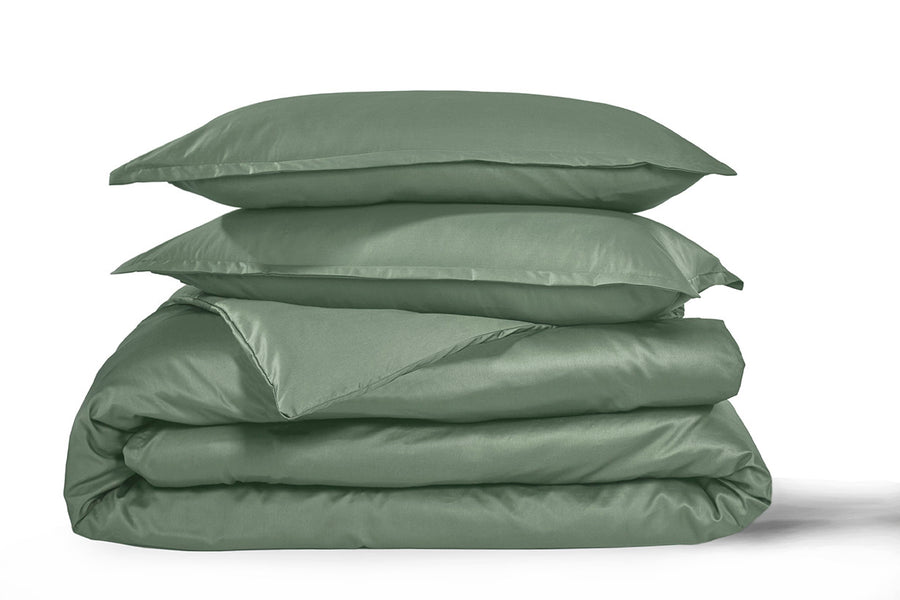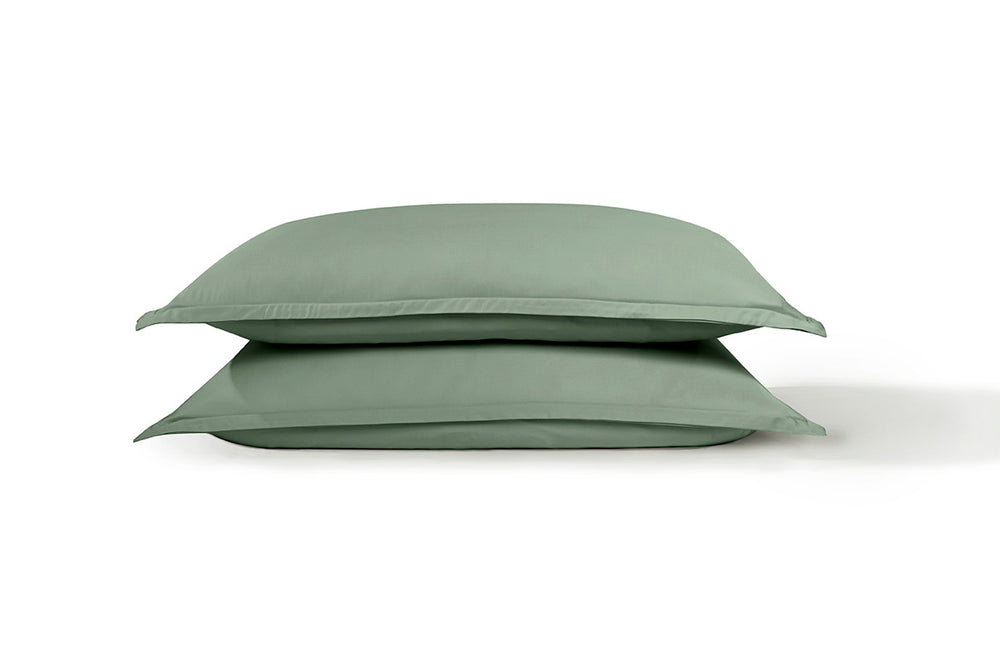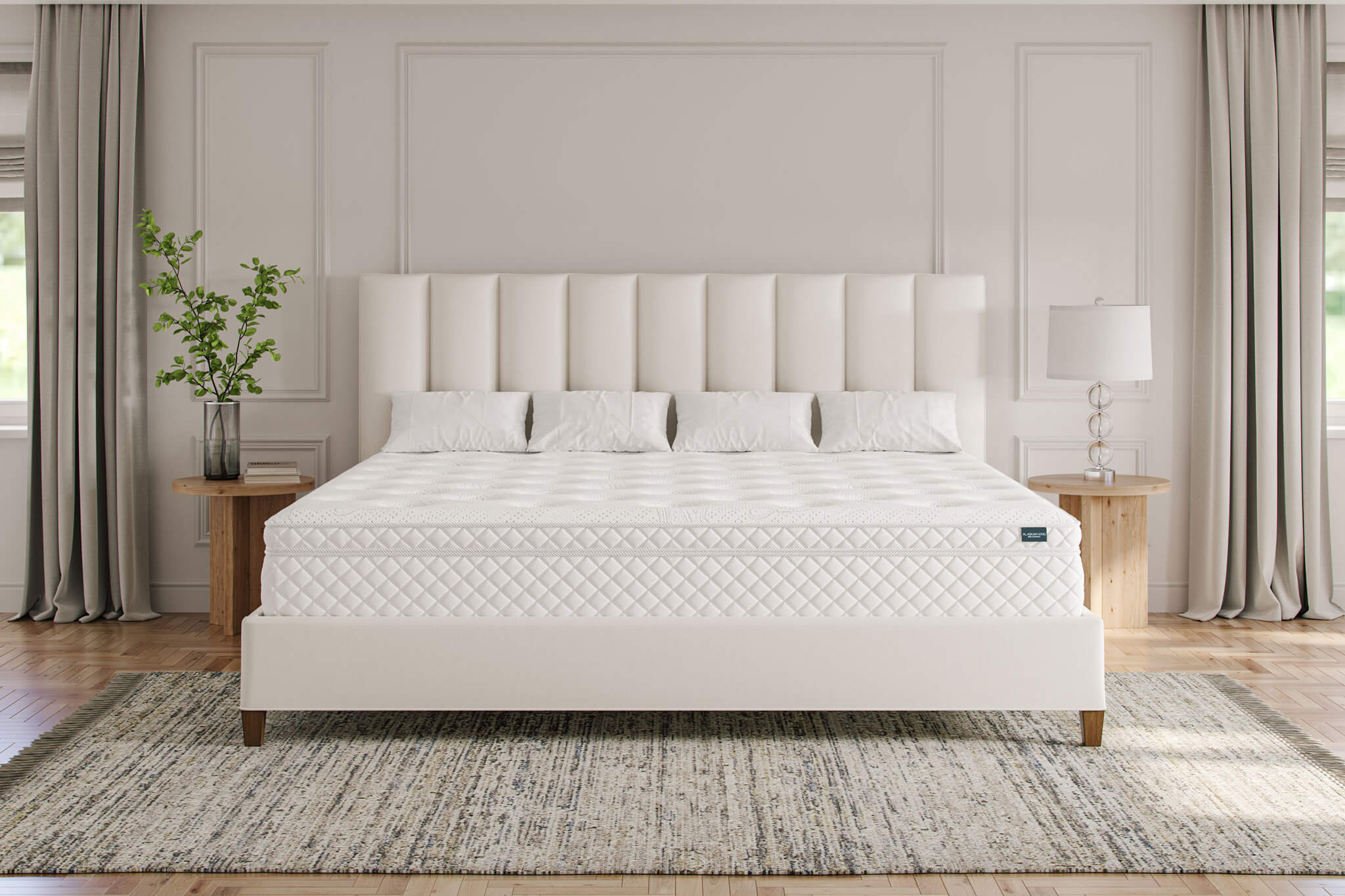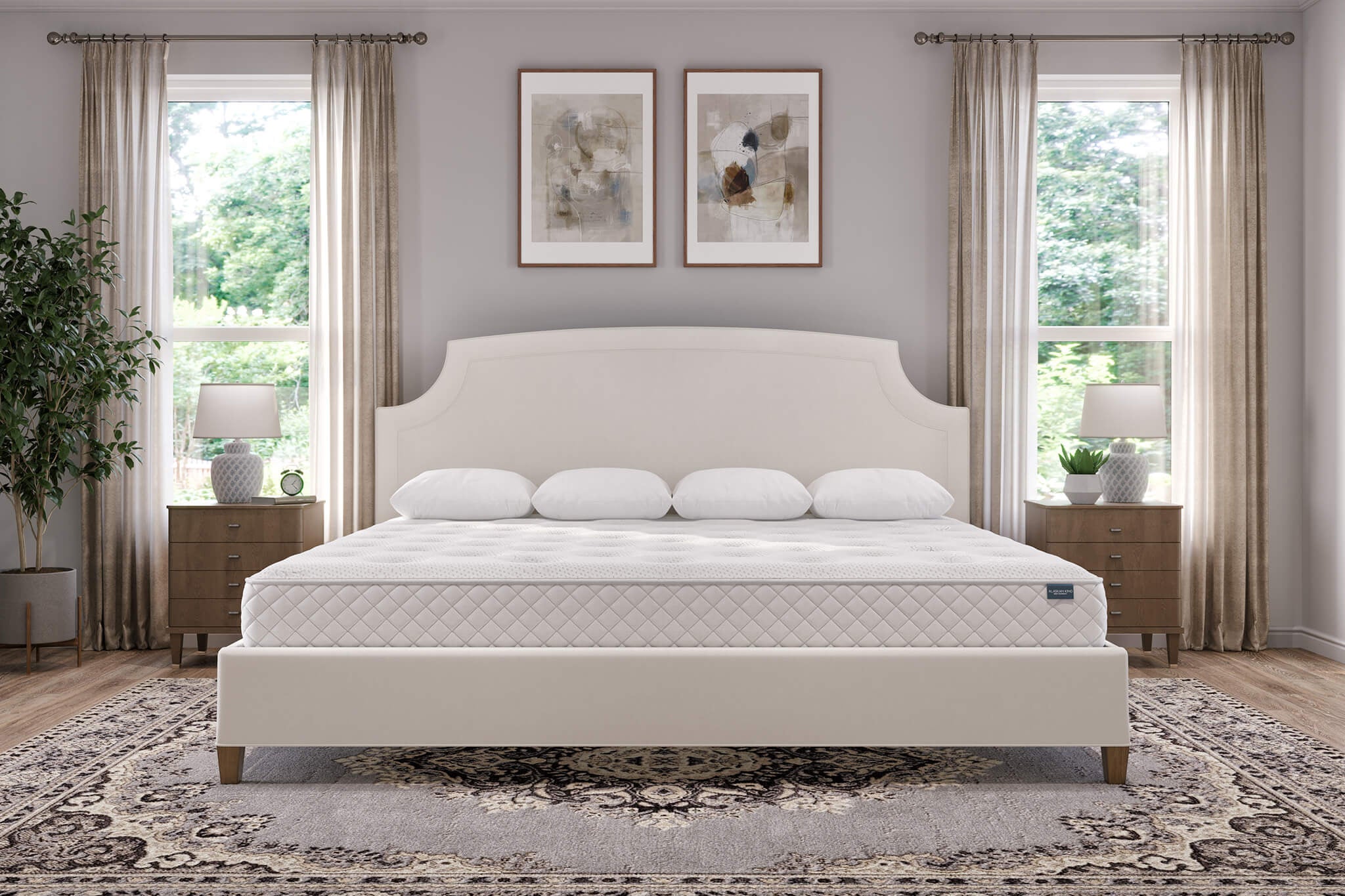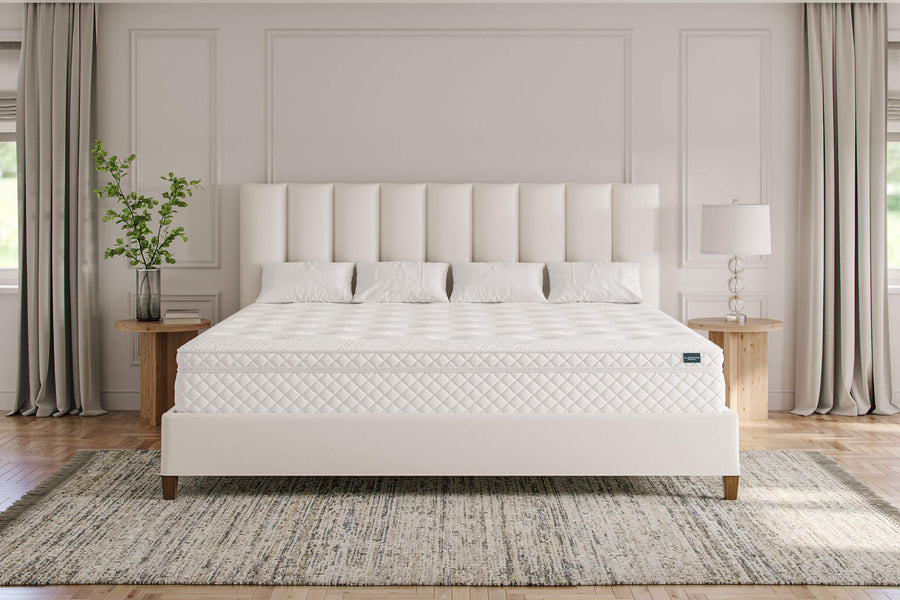10 Most Common Sleep Myths (and the Truth Behind Them)
Sleep should be simple. You close your eyes, drift off, and wake up refreshed. But thanks to all the myths floating around, getting a good night’s rest has become way more complicated than it needs to be.
Maybe you’ve been told you must get exactly eight hours of sleep every night. Or that you can make up for late nights by sleeping in on the weekend. Or that a glass of wine before bed will help you sleep better (spoiler: it won’t).
A lot of common sleep advice is based on outdated science, half-truths, or just plain fiction. And believing these myths can actually hurt your sleep quality instead of improving it.
So, let’s separate fact from fiction and make sure your sleep habits are working for you, not against you.
1. You Need Exactly 8 Hours of Sleep Every Night
For years, we’ve been told that eight hours of sleep is the gold standard. This number comes from early sleep research and recommendations. Studies showed that, on average, adults function best with 7-9 hours of sleep per night, so eight became the easy, one-size-fits-all answer.
But here’s the thing: your ideal sleep duration isn’t dictated by a single number. Everyone’s sleep needs are different due to genetics, lifestyle, and even sleep efficiency. Some people naturally do fine with just six and a half hours, while others need closer to nine to feel fully rested.
Instead of obsessing over hitting an exact number, the real question is: do you wake up feeling rested?
If you’re constantly groggy despite getting eight hours, the problem might not be the number but your mattress, sleep quality, or bedroom environment. Because at the end of the day, it’s not just about how long you sleep but how well you sleep.
2. You Can Catch Up on Sleep Over the Weekend
We’ve all told ourselves we’d catch up on sleep over the weekend. It sounds like a solid plan, but sleep debt doesn’t work that way. You can’t just bank extra hours on Sunday and undo the damage of sleep deprivation.
When you regularly skimp on sleep, your body accumulates sleep debt, which leads to fatigue, brain fog, and long-term health risks like heart disease and weakened immunity.
Sleeping in may help a little, but it doesn’t fully reverse the effects of lost sleep. Worse, shifting between short sleep during the week and oversleeping on weekends can throw off your inner clock, making quality sleep even harder to achieve.
Instead of relying on catch-up sleep, you should try to develop a regular sleep schedule that gives you enough sleep every night. And if you’re still waking up exhausted, it might not just be your schedule – it could be your bed.
3. Watching TV or Scrolling Your Phone Helps You Fall Asleep
Do you need to watch TV or scroll your phone to relax before bed? It feels like a harmless wind-down routine until you realize it’s actually sabotaging your sleep.
Screens emit blue light, which interferes with the production of melatonin, the hormone that helps you feel sleepy. Instead of preparing your body for rest, late-night screen time tricks your brain into thinking it’s still daytime and makes it harder to fall and stay asleep. Even if you doze off with Netflix in the background, the constant light and noise prevent deep, restorative sleep.
And let’s be honest: how often do we actually unwind while scrolling? Social media, news, and emails can spike stress and keep your brain wired when it should be powering down.
A better approach is to swap screens for a book, meditation, and a dark, quiet bedroom.
4. Snoring is Harmless
Snoring might seem like nothing more than an annoying habit, but it’s not always harmless. While occasional snoring is normal (especially if you’re congested or had a little too much wine), it can also be a sign of something more serious.
Chronic, loud snoring could point to obstructive sleep apnea, a condition where breathing repeatedly stops and starts during sleep. These events disrupt oxygen flow, which leads to poor sleep quality, daytime fatigue, and even long-term health risks like high blood pressure and heart disease.
Even if sleep apnea isn’t the culprit, snoring can still wreak havoc on sleep for both you and your partner. Poor sleep quality means waking up groggy, struggling to focus, and feeling sluggish all day.
If snoring is a nightly issue, it’s worth looking into. Small changes like adjusting your sleep position, avoiding alcohol before bed, and upgrading to a larger, more supportive mattress can help keep your airways open and your sleep uninterrupted.
5. Alcohol Helps You Sleep Better
Alcohol might make you feel drowsy, but it isn’t doing your sleep any favors. While it might feel like it helps you fall asleep faster, it actually disrupts your sleep quality throughout the night.
That’s because alcohol messes with the deep stage that helps with memory, mood, and overall recovery. Instead of cycling smoothly through sleep stages, your body gets stuck in lighter sleep, which makes you more likely to wake up groggy and tired.
Alcohol also dehydrates you, causes night sweats, and increases bathroom trips, all of which lead to more tossing and turning.
Ever notice how you wake up at 3 AM after a few drinks? That’s because alcohol wears off mid-sleep, which triggers rebound wakefulness. Sounds like the opposite of a restful night.
If you want to sleep well, skip the nightcap and try a relaxing bedtime routine instead. Herbal tea, a warm bath, or reading a book can be a better recipe for quality sleep.
6. Older Adults Need Less Sleep
It’s a common belief that as you age, you need less sleep, but that’s not exactly true. Older adults still need over 7 hours of sleep per night, just like younger adults. The difference is that many struggle to get it.
As we age, our sleep cycles naturally shift. We spend less time in deep sleep, which makes it easier to wake up throughout the night. Health conditions, medications, and even changes in circadian rhythm can also make it harder to stay asleep or feel fully rested.
Because of these disruptions, older adults often get less sleep, not because they need less, but because it’s harder to come by. That’s why they feel more drowsy during the day and need a nap. It’s also why they experience an increased risk of health issues like heart disease and cognitive decline.
7. The More Sleep, The Better
If sleep is good for you, then more must be even better, right? Not quite. Too much sleep can be just as problematic as too little.
Research shows that consistently sleeping more than 10 hours per night is linked to higher risks of heart disease, diabetes, and even cognitive decline. Oversleeping can also leave you feeling groggy, sluggish, and oddly more tired, thanks to disrupted sleep cycles and excessive time spent in lighter sleep stages.
That said, your body knows what it needs. If you regularly feel like you need more sleep, don’t ignore it. For example, sleeping longer once in a while, like when recovering from a cold, is completely normal.
However, chronic fatigue could be a sign of poor sleep quality, underlying health issues, or even an uncomfortable mattress that’s preventing deep, restorative rest. Instead of worrying about the number of hours, focus on how you feel when you wake up because that’s the real measure of good sleep.
8. Naps Ruin Your Sleep
Naps have a bad reputation. People say they’ll mess up your sleep schedule, make you groggy, or keep you tossing and turning at night. But napping can actually be beneficial to you.
A well-timed nap can boost focus, improve memory, and reduce stress. The key is to keep it short and strategic. For example, a 10- to 20-minute power nap can refresh you without causing grogginess, while a 90-minute nap allows you to complete a full sleep cycle.
The real trouble starts when naps drag on too long (think 2+ hours) or happen too late in the day, which can throw off your nighttime routine.
So, if you feel like crashing mid-afternoon, go ahead and nap. Just keep it brief and aim for earlier in the day to avoid interfering with your regular sleep schedule.
Want to become a napping pro? Read our tips on how to improve your napping game.
9. Never Wake Up a Sleepwalker
We’ve all heard the warning never to wake a sleepwalker, or they’ll go into shock, have a heart attack, or collapse on the spot. Sounds dramatic, right?
However, waking a sleepwalker won’t harm them, but it might confuse or startle them.
Sleepwalkers are in a deep sleep state, so if you shake them awake, they might be disoriented or even irritated. But leaving them to wander around unsupervised? That’s the real danger. Sleepwalkers have been known to walk outside, trip over furniture, or even attempt to drive.
If you encounter a sleepwalker, the best thing to do is gently guide them back to bed rather than abruptly waking them. But if they’re in danger, wake them up in a calm and reassuring way.
10. You Swallow Spiders in Your Sleep
This one might be the most unsettling sleep myth out there. You’ve probably heard that the average person swallows eight spiders a year in their sleep. But let’s get one thing straight – this is pure fiction.
Spiders have zero interest in crawling into your mouth. Your breath, heartbeat, and movement make you seem more like a giant, terrifying predator than a cozy resting place. Plus, spiders tend to avoid humans whenever possible.
The idea that they’d willingly march into your mouth while you’re snoring away? Not happening.
This myth likely spread through internet folklore and urban legends, but there’s no scientific evidence to back it up. So, sleep easy knowing your midnight snack will not include eight-legged intruders.
Don’t Let Sleep Myths Ruin Your Rest
Thanks to outdated advice and urban legends, many of us unknowingly follow habits that hurt our sleep instead of helping it.
Whether it’s the belief that you can catch up on sleep over the weekend, that alcohol is a sleep aid, or that more sleep is always better, these myths can throw off your routine and leave you feeling exhausted.
Now that you know the truth, it’s time to start making changes that actually improve your sleep. That might mean adjusting your schedule, rethinking your pre-bedtime habits, or upgrading to a bigger mattress to ensure you’re getting the best rest possible.


